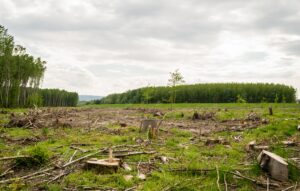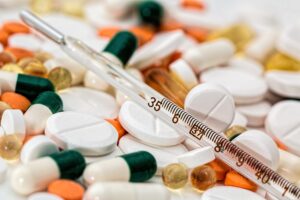The meat and dairy industry plays a significant role in our global food system, but it also has a profound impact on the environment. From deforestation to greenhouse gas emissions, the industry’s practices contribute to climate change, water pollution, and biodiversity loss. In this article, we will delve into the polluting practices of the meat and dairy industry and explore how transitioning away from them can bring positive environmental impacts.
Deforestation and Land Use
The expansion of the meat and dairy industry has led to extensive deforestation, particularly in regions like the Amazon rainforest. Forests are cleared to make way for cattle ranching and the cultivation of animal feed crops, such as soybeans. Deforestation not only contributes to the loss of crucial carbon sinks but also disrupts ecosystems, destroys habitats, and threatens biodiversity. Shifting away from these practices would alleviate pressure on forests and protect invaluable ecosystems.
Greenhouse Gas Emissions
Livestock production is a significant contributor to greenhouse gas emissions, with the meat and dairy industry accounting for a considerable portion of global emissions. According to the Food and Agriculture Organization (FAO), livestock contributes around 17% of global human-induced greenhouse gas emissions. The production and processing of animal feed, methane emissions from ruminant digestion, and manure management all contribute to the industry’s carbon footprint. Transitioning to plant-based diets and sustainable agricultural practices can substantially reduce these emissions and help mitigate climate change.
Water Pollution and Scarcity
The meat and dairy industry heavily relies on intensive farming practices that require large amounts of water. The excessive use of water for livestock hydration, feed production, and cleaning contributes to water scarcity in many regions. Moreover, the industry generates significant water pollution through the discharge of manure and chemicals, which contaminate water bodies and harm aquatic ecosystems. By moving away from polluting animal agriculture practices, we can alleviate water stress and protect water resources for future generations.
 Antibiotic Resistance and Public Health
Antibiotic Resistance and Public Health
Intensive livestock farming often involves the routine use of antibiotics to promote animal growth and prevent disease outbreaks in crowded conditions. This overuse of antibiotics contributes to the emergence of antibiotic-resistant bacteria, posing a severe threat to public health. Transitioning to more sustainable and regenerative farming practices, such as agroecology and pasture-based systems, reduces the reliance on antibiotics and supports healthier and more resilient farming systems.
Biodiversity Loss and Habitat Destruction
The expansion of the meat and dairy industry leads to habitat destruction and biodiversity loss. Large-scale monoculture crops, primarily for animal feed production, replace diverse ecosystems, disrupting natural habitats for wildlife. Furthermore, intensive livestock farming often involves the destruction of natural grasslands and wetlands, which are critical for biodiversity conservation. By promoting more sustainable and regenerative agricultural practices, we can restore habitats, support wildlife populations, and protect biodiversity.
The polluting practices of the meat and dairy industry have far-reaching consequences for our planet. From deforestation and greenhouse gas emissions to water pollution and biodiversity loss, the industry’s impact on the environment is significant. However, by transitioning towards more sustainable alternatives, such as plant-based diets, regenerative farming practices, and supporting local and organic agriculture, we can create positive environmental change. By embracing these shifts, we can mitigate climate change, protect ecosystems and biodiversity, conserve water resources, and promote public health. It is time to recognize the need for a more sustainable food system that prioritizes the health of our planet and future generations.






